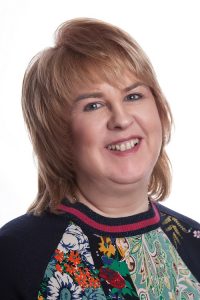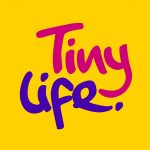A guest article by Alison Mc Nulty, Chief Executive Officer, Tinylife, Northern Ireland

Image: © EFCNI
Every year in Northern Ireland 2000 babies are born too soon, too sick or too small spending anything from a few days, weeks or even months in one of the 7 neonatal units across the country.
In 1988 Northern Ireland had the highest levels of baby mortality and morbidity across the developed world, so a group of parents and health professionals came together to set up the Northern Ireland Mother and Baby Appeal (NIMBA) to fund research. Over the years the charity grew and developed to provide a range of supports for parents, to provide training for professionals, to lobby and campaign and most importantly to be the voice of parents. NIMBA changed its name to TinyLife in 2006 and is the only charity in Northern Ireland which supports families of premature babies and sick babies who spend time in the neonatal unit up to pre-school age, through their journey taking them from shock to stability.
Over the years, we continued with the full range of our work but family support has been our key focus to improve outcomes. Before COVID-19, we provided family support services in neonatal units, in family homes and community setting. These services were delivered by a team of 8 Family Support Officers (FSOs) who come from a range of professional backgrounds including nursing, early years, teaching and family support; 1 Breast Pump Loan Co-ordinator who is a trained breastfeeding peer support person and the Head of Operations who oversees the daily running of the services. Each FSO is attached to a neonatal unit and covers a specific geographic area. The Family Support Model that we operated prior to COVID-19 included:
Neonatal Unit the Family Support Officer (FSO) will work alongside medical colleagues to provide listening ear support, breast pump loan service as breast milk is an essential ‘medicine’ for premature babies, providing clothes and equipment and completing applications for financial support.
Homebased Services– the same FSO from the unit will visit families in their own homes and if appropriate a volunteer will provide four hours practical and emotional support to parents in their own home tailored to the family’s needs and helping them to engage with community-based services
Community-based services – Again, the same FSO will provide specialist baby massage courses and TinyTime parent support groups in a local community setting.
Specialist Services – We provide a range of specialist developmental and support services to families in partnership with medical staff or other voluntary organisations. TinyGym physiotherapy program for extremely premature babies, Positive Minds for Premature Parents, focusing on and providing support for mental health and a range of developmental programs to improve the longer-term outcomes for premature babies.
In the middle of March, we were forced to cancel all face-to-face services and close up the Family Centre. However, in the first 4 months of the pandemic, we have seen a significant increase in the number of families contacting TinyLife asking for support. We have been offering more one-to-one telephone support and online video sessions to parents. We also moved quickly to develop a digital platform to meet demand, support parental and infant mental health and encourage peer support. That includes:
- Closed Facebook page providing information and support to all families and relevant parties including videos, webinars and podcasts. Whilst the Facebook page is monitored for inappropriate activity by an FSO, parents are encouraged with peer to peer support.
- TinyTime parent support groups are now being delivered online. Previously each group met once per month in their local community setting with up to 20 families attending each session they now meet weekly through Zoom with no more than 6 families online per session.
- We have been worked with the International Association of Baby Massage and developed a new baby massage program to be delivered online, which will be a rolling program offered to more parents.
- TinyGym, our specialist physiotherapy program in the NHSCT, is being delivered online through weekly sessions. The Physiotherapist, the Advanced Neonatal Nurse and the FSOs are online to go through the program with no more than 10 families. The physiotherapist follows up individually with a family if required
- With Positive Minds for Premature Parents, our mental health program we have worked with our partners and are delivering information and programs online, including counselling, Cognitive Behaviour training and raising awareness of Post Natal Depression.
We know that already anxious and stressed parents concerned with infection control may not want to engage in face-to-face services even when lockdown eases for the general public. Firstly, we are planning to undertake a parent survey to understand what online services parents feel will work for them and what face-to-face services we need to provide. The Family Support Model post lockdown needs to begin to deliver a hybrid model. This will lead to a longer-term model of support that reaches out and supports more families by building on the now established digital platform and getting families to confidentially re-engage in their local community.
 Thank you for sharing these insights. For more information about the services provided by TinyLife, please visit their website https://www.tinylife.org.uk/
Thank you for sharing these insights. For more information about the services provided by TinyLife, please visit their website https://www.tinylife.org.uk/

